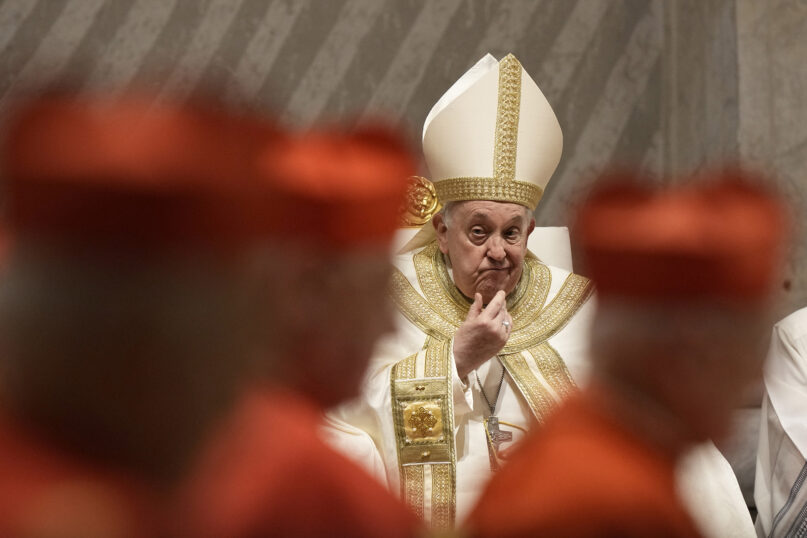ROME (AP) — A delegation of German bishops is expected in Rome soon after the Vatican insisted they scrap a planned vote this week on a controversial proposal to let laypeople participate in a decision-making council alongside bishops.
The aborted vote was the latest in years of efforts by the Holy See to rein in the German Church, which has embarked on a radical reform agenda that seeks to give the laity greater decision-making say on issues such as the role of women, sexual morality and priestly chastity in the church.
Pope Francis has made clear the proposed German council, which had been approved last year by a two-thirds majority of German bishops and the country’s powerful lay group ZdK, was contrary to the sacramental structure of the church and that he personally had “interdicted” it.
A regular meeting of the German Bishops’ Conference this week had been expected to vote on the statutes of a committee that would have prepared for the future council. But on Feb. 16, the three most powerful Vatican cardinals — the secretary of state, the head of the doctrine office and the head of the bishops office — wrote a letter to the Germans telling them to postpone the vote.
The cardinals’ letter said such a joint council had no basis in church law and that any decision to create one would be null and void since it wouldn’t have any authority to approve any statutes, according to the Vatican newspaper L’Osservatore Romano.
The cardinals, Pietro Parolin, Victor Manuel Fernandez and Robert Prevost, called for further talks with the Vatican before proceeding. The letter warned that “if the statutes of the Synodal Commission were to be adopted before this meeting, the question of the purpose of this meeting, and the ongoing process of dialogue in general, would arise.”
No date has been set, but the head of the German Bishops Conference, Bishop Georg Baetzing, said a German delegation would soon be traveling to Rome. Delegations of German bishops have made previous such visits over the past two years in hopes of keeping dialogue open.
Baetzing appeared optimistic the tensions could be resolved through communication, German news agency dpa reported. “Perhaps the Roman side also has a proposal,” he said at a press conference after the vote was taken off the agenda for this week’s meeting.
Germany’s “Synodal Path” reform process was launched in 2019 in response to the sex abuse crisis that has rocked the church in Germany and many other countries and has been a major factor in large numbers of German Catholics leaving the church.
In an effort to assuage concerns from Rome, German church leaders have insisted the process won’t trigger a schism.
But others have warned that schism is indeed possible and Francis himself said in an interview last year with The Associated Press that the process was becoming harmfully “ideological.”
Baetzing insisted that a joint council of laity and bishops would in no way weaken the authority of bishops, as is feared by the Vatican, but would in fact strengthen it.
“We do not want to limit the authority of the bishop or bishops in any way,” he said, according to L’Osservatore Romano.
“We want to place them on new ground because this authority has been undermined by the abuse and scandal we have experienced. … And that’s why we need new, binding and transparent advice that really flows into decisions. This is the path we are looking for.”
___
Moulson reported from Berlin.





